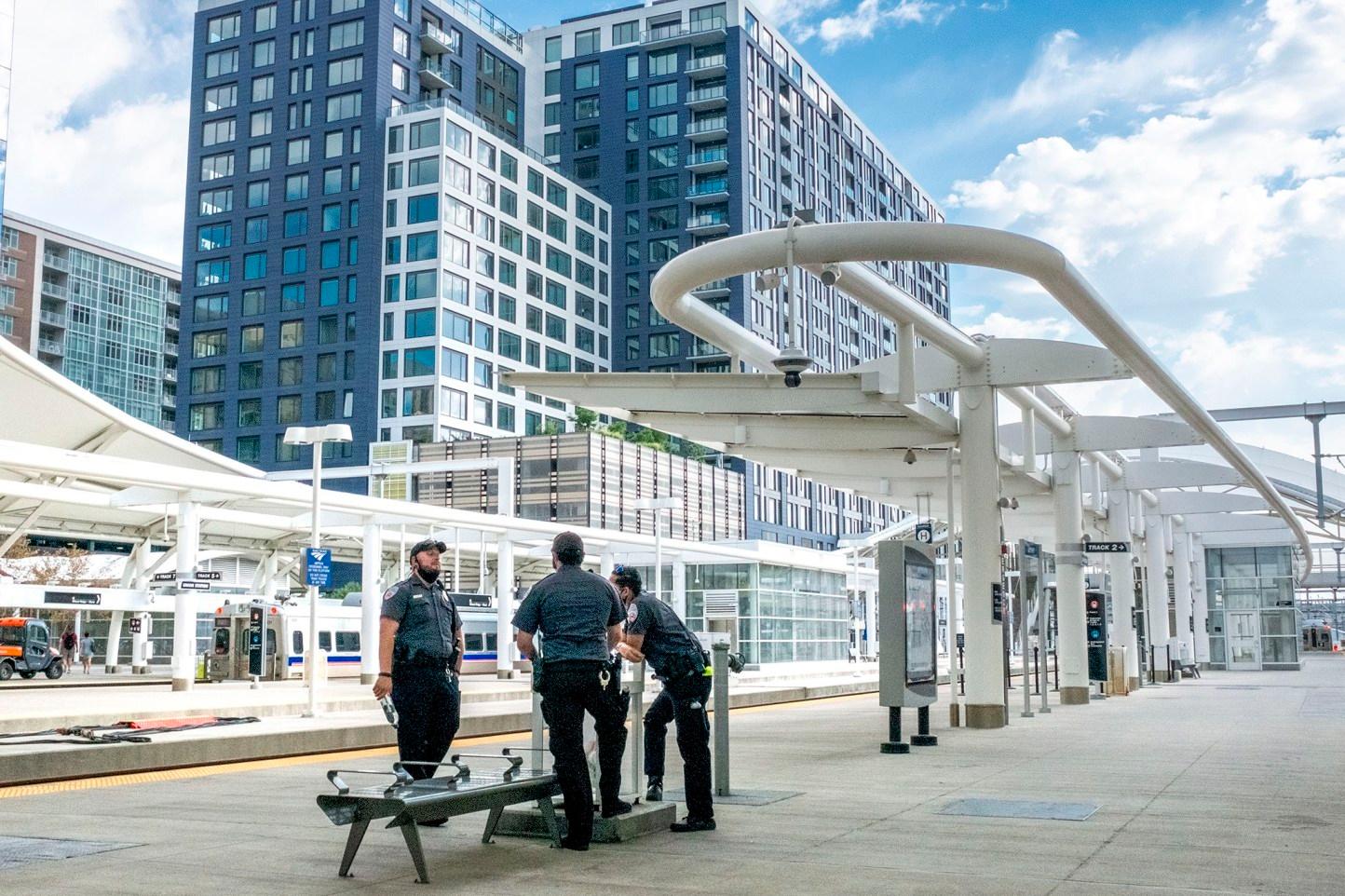As the debate over who can be at Regional Transportation District stations and how authorities should enforce regulations continues, the transit agency will step slightly more lightly than previously thought.
In April, Denverite reported on RTD's new "code of conduct," a document that empowers security officers to boot people from public transit facilities and write citations for a variety of reasons. Perhaps the broadest rule on the list, which was still a draft, went like so: "RTD may, in its sole discretion, regulate the movement of individuals to enable the provision of transit services." RTD property will "be used only for travel-related purposes," it continued.
In other words, RTD transit officers and their agents, which include private security guards with Allied Universal, would be allowed to physically remove people who could not prove they were in transit.
But the RTD Board of Directors passed the final code of conduct in July without that key controversial piece. Officials also removed "lying or sitting on the floor, platform, stairway" and so on from the list of no-nos.
"There were a lot of conversations about how some of the RTD proposed policies were going to impact people experiencing homelessness," said Cathy Alderman, vice president of public policy for the Colorado Coalition for the Homeless. She helped shape the final policy. "I think they did a good job of bringing people in with some broad perspectives ... to really try to make some more equitable considerations for those policies, recognizing that a lot of those policies, with stations, fares and accessing transportation, disproportionately impact people experiencing homelessness."
RTD's elected board passed the code of conduct 14 to 1, with Director Natalie Menten voting against the policy on constitutional grounds. She had concerns over "First Amendment rights with our ad hoc policy," she said after the July 21 vote.
You still cannot do at least 49 things at places like Union Station and Civic Center station, the code states, including dozing off "where such activity may cause concern for the person's well-being."
The decision to lighten up on RTD security came amid multiple news stories surrounding the beating of Denver artist Raverro Stinnett by Allied security guards, the privatization of Denver Union Station (branded as "Denver's living room") and signs citing an obsolete state law banning people without a fare from standing or sitting around.













